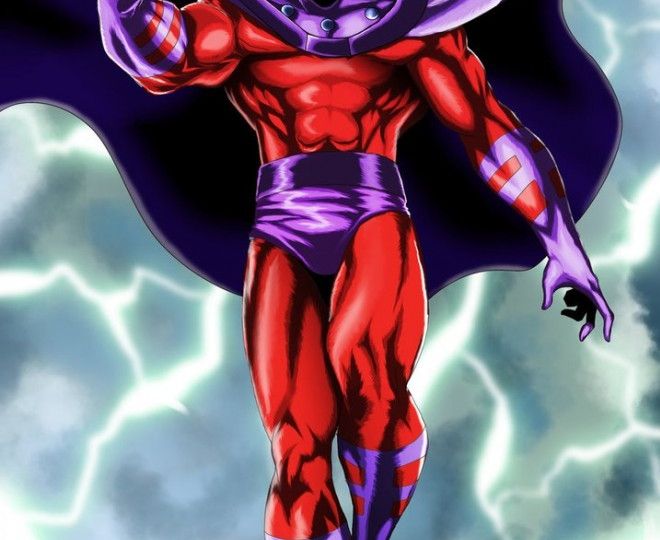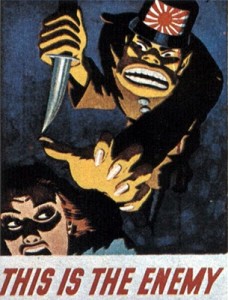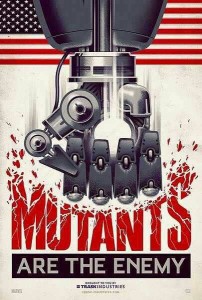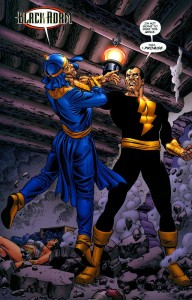
Comic books have certainly come a long way from the old “Good guys versus Bad Guys” routine. This is not to say that those stories are not still well written or enjoyable, or that this paradigm is dead, but that critics and writers alike have since examined and re-examined just what those roles mean. The Bronze Age of comics saw a huge paradigm shift, as weary writers jumped to take advantage of any easing of the restrictions set by the Comics Code Authority. While characters stayed villains, the reasoning seemed less that they are evil and more that they are villains simply because they are in opposition to the heroes. A prime example would be Marvel’s Galactus. He started out as the remorseless evil destroyer of worlds but from the Bronze Age on, he was treated more as a force of nature or an entity that is doing what he must. Galactus cannot control the hunger he feels and it is maddening to him, but he is just doing what he must. This brings up something that shakes the very foundations of how we can think about super hero fiction. Even if a villain is trying to destroy the world, it doesn’t necessarily make him pure evil. A group that was required to be portrayed as pure evil without any sympathy in order for the book to even be sold in stores, could now be looked upon with at least some sympathy. It was jarring to say the least, to consider that the evil in the deeds and hearts of villains actions’ was potentially a reluctant evil.
The Anti-Hero became wildly popular during this time and though to a lesser extent still remains wildly popular. The poster child for the anti-hero is Wolverine, a hero who uses a villain’s methods of intimidation, killing etc. Perhaps some even enjoy the violence and killing, as there is evidence for in the Punisher Max series, and some you only root for because the author put them in the role of hero, or because everyone else is so much worse. If there are anti- heroes surely there are characters who can be called anti-villains as well, but this term doesn’t seem to be used very often. What likely interested people in anti-heroes is also what makes an anti-villain interesting as well. It is the jarring juxtaposition of conflicting ideals; the fact that the character doesn’t fit in the role to which he was assigned, so you don’t truly know what to expect within the story. The reader can’t expect they will not solve the problems like regular heroes would. In the case of anti-villains it would mean that they do a poor job of making the reader hate them or making the reader immediately invalidate their actions or ideology inside their own minds. It is not clear how the reader should feel because of how skewed the role becomes.
On Marvel’s side of the fence, we have the poster child for all anti-villains, Magneto. In the same way that Wolverine emphasized everything about the anti-hero, Magneto’s character was changed from the leader of all evil mutants, which he referred to himself as, to a man seeking justice in an unjust world. This brings up the question, how can a man be good when the world around him is so bad? Magneto is not only a Holocaust survivor, but mutant as well. He was made into an outcast twice in his life, both for things that he had no control over. He saw and experienced the holocaust first hand. He saw that the fate of mutants was heading in the same direction, and while as a powerless child he could not help the Jews, he now had the power to change the world for the betterment of his own kind. Magneto has god like powers in the palm of his hands, but the “right way” of doing things would dictate that he not use violence and try to be diplomatic. How viable of an option is that when the government allows giant killer robots to patrol the streets, robots that will even indiscriminately disintegrate children? Magneto knows first hand how unjust laws and institutions can be, so what reason does he have to follow Xavier’s example? If someone had the power to save their people who were threatened with extinction, why is it immoral to use that power? The human world started a war, an extermination against everyone like him, labelled them subhuman monsters, but he is evil for fighting back and not simply dying quietly? Looking at the facts Magneto seems an awful lot like a hero, but he is the antagonist. His methods are not as kind as Xavier’s, but how smart does it seem to talk things over with the people sanction child murder and are dedicated to wiping you off the face of the Earth?
When this is what you’re up against, see how reasonable diplomacy seems.


On DC’s side of the fence, there is Black Adam. While he was once just big evil goon for Captain Marvel to beat on, the 1999-2006 series JSA, gave more depth to the character. In Black Adam’s time, ancient Egypt, he was a hero. This was a time when it was acceptable to kill those who have wronged you. What caused Shazam to seal Black Adam was his inability to control his rage when his home nation and family were taken from him. That anger didn’t subside after thousands of years and drove him to evil action. Black Adam came to fit the role of anti-villain during his time on the JSA. His old homeland was under the thumb of a dictator, and he used his powers to liberate it. To his people he became a benevolent ruler whom they loved. He is marked as a villain because he took part in the politics of the world. The heroes help when they are needed, but never got involved in political strife or war. Black Adam refused to be a glorified volunteer, which he sees heroes as, and actually decided to change the world for the better. He saw something wrong, his people suffering, and he did something about it. The heroes limited their own capacity to help because of their ideals. Black Adam’s actions undeniably stemmed from a desire to save his people and the results were undeniably positive. His people were suffering under the dictator and he brought peace and prosperity. He is the villain in this case simply because he disagrees with the heroes.

- Black Adam sees no reason to spare the man who violated his wife. The world would objectively be a safer place without Felix Faust.
Neither side is completely justified in this scenario. One the one hand, Black Adam does use ruthless methods to achieve his goals, but, on the other hand, the heroes just expected him to watch his people die and suffer all over again when he has the power to stop it.
The anti-villain changes the battle from that of good against evil into a battle of different ideals. Black Adam and Magneto are ruthless and vengeful to be sure, and while one can certainly judge their actions as only escalating violence or not trying to find a better way to peacefully co-exist, it becomes very difficult to judge their ideology and write them off simply as bad guys. When the world tries with all its might to destroy you or to tell you that you are wrong for not watching the suffering in silence, what reason would you have to follow the rules of a world like that? These men are villains because they don’t just help within the world’s acceptable parameters, because they challenge the status quo. This isn’t to say that the path of the hero is not a noble one or that regular hero stories are bad. It just means that some people will not be satisfied with the answers and rules that the world hands them, and it is likely that people like this will be on the wrong side of the narrative, regardless of the beneficial results of their actions or the nobility of their causes.


















interesting premise. i’d like to see more examples (or a possible sequel article) in the near future. i’ve always thought of magneto as a villain because he’s an elitist… it’s just convenient that he can use his tragic history at humankind’s hands to justify his goals. he’s actually kinda full of shit. and as for black adam, i’d say that he has “heroic tendencies” at times, yes, but is far from a hero. he’s a villain because he’s a god and has no respect for humanity or anyone other than himself. just my two cents.
For a while I think they even took it too far. Don’t get me wrong the comics code was bullshit to not let villains even be remotely relatable or sympathetic, but someone got popular, they try to spin it another way, Venom becomes the “lethal protector” for example, they couldn’t just let bad guys be bad guys!